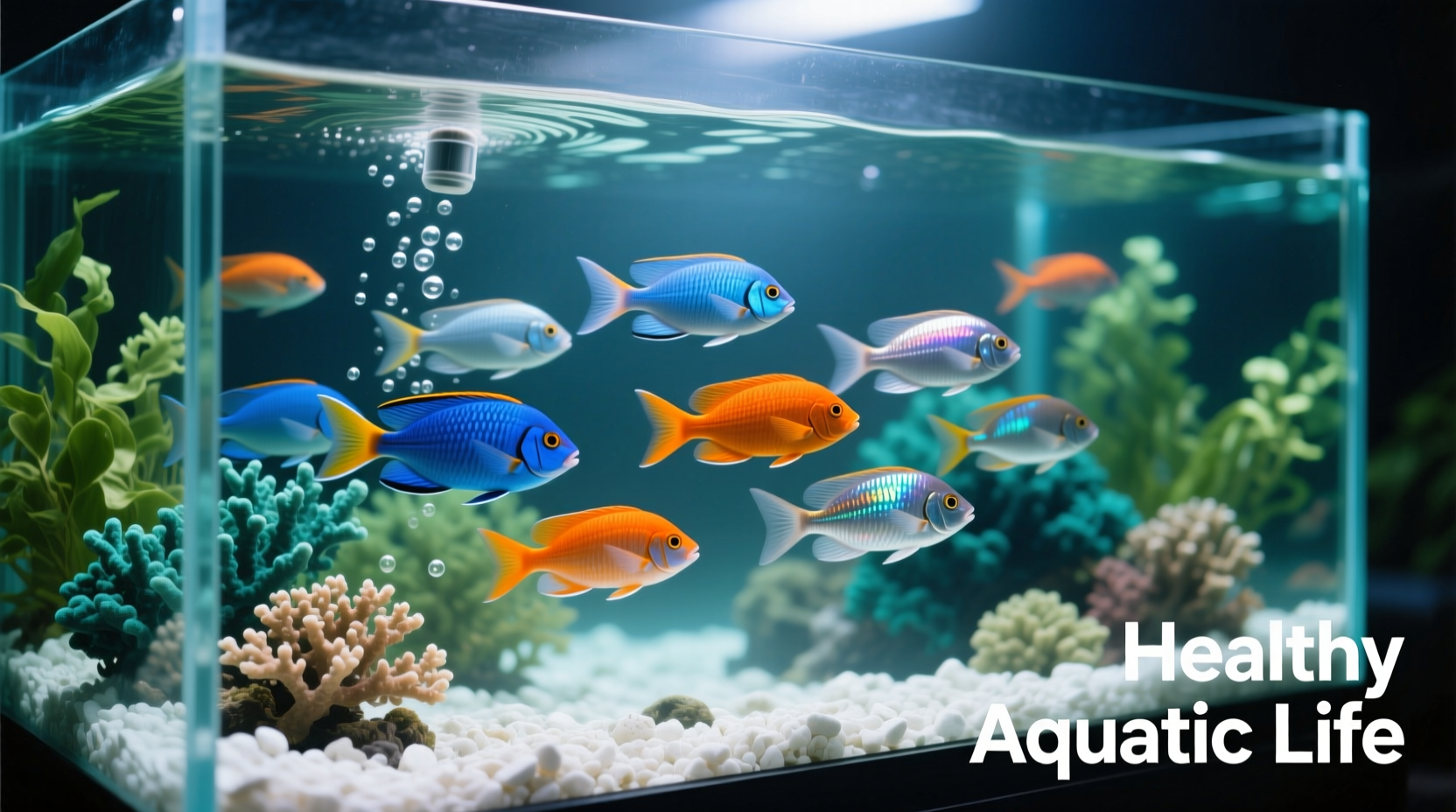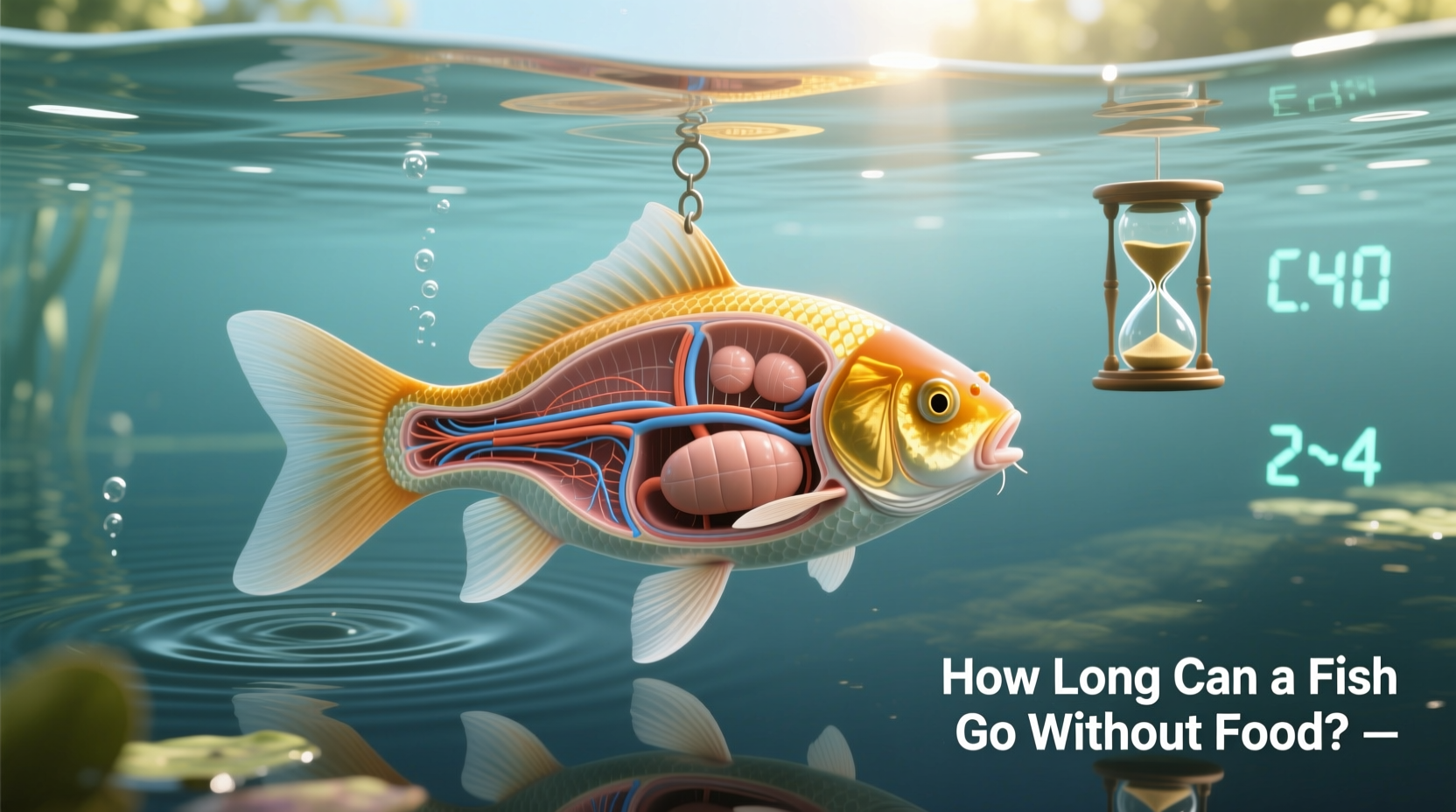Planning a vacation or business trip? Understanding how long your aquatic companions can safely go without food is crucial for responsible fishkeeping. This comprehensive guide reveals science-backed fasting durations for different species, helping you make informed decisions about fish care when you're away from home.
Understanding Fish Metabolism and Fasting Capacity
Fish metabolism works differently than mammals, operating on an ectothermic (cold-blooded) system where water temperature directly impacts their energy consumption. When food isn't available, fish enter a conservation mode, slowing their metabolic rate to preserve energy reserves stored in their liver and muscles.
Water temperature plays a critical role in determining fasting duration. In cooler water (65-72°F), fish metabolism slows significantly, extending survival time. Warmer water (78-82°F) increases metabolic rate, depleting energy stores faster. This explains why the same species might survive twice as long in cooler conditions.
| Water Temperature | Metabolic Rate | Impact on Fasting Duration |
|---|---|---|
| 55-65°F (cool) | Slowest | Maximum fasting duration (up to 2 weeks) |
| 72-78°F (ideal) | Moderate | Standard fasting duration (7-10 days) |
| 80°F+ (warm) | Fastest | Reduced fasting duration (4-7 days) |
Species-Specific Fasting Durations
Not all fish are created equal when it comes to fasting resilience. Understanding your specific species' capabilities is essential for proper care planning.
Common Freshwater Species:
- Goldfish: 10-14 days (robust metabolism, efficient energy storage)
- Betta Fish: 10-14 days (though not recommended regularly)
- Tetras: 5-7 days (smaller species have higher metabolic rates)
- Cichlids: 7-10 days (varies by specific type)
- Barbs: 7-10 days
Marine/Saltwater Species:
- Clownfish: 7-10 days
- Gobies: 5-7 days
- Angelfish: 7-10 days
- Wrasses: 4-6 days (higher metabolic rate)
According to research from the National Academies of Sciences, Engineering, and Medicine, fish species that naturally experience seasonal food scarcity in the wild (like goldfish in temperate climates) have evolved more efficient energy conservation mechanisms than species from consistently food-rich environments.

When Fasting Becomes Dangerous: Warning Signs
While fish can survive without food for limited periods, extended fasting leads to serious health consequences. Recognize these critical warning signs that indicate your fish needs immediate feeding:
- Physical changes: Noticeable weight loss, sunken eyes, or visible spine
- Behavioral changes: Lethargy, staying at bottom, or unusual hiding
- Color fading: Loss of vibrant coloration
- Reduced activity: Minimal movement except when startled
Research published in the Aquaculture Journal indicates that after 14 days without food, most fish begin experiencing irreversible organ damage, with mortality rates increasing significantly beyond this point.
Practical Solutions for Extended Absences
When planning to be away from your aquarium, consider these responsible feeding strategies:
Vacation Blocks: Pros and Cons
Vacation blocks slowly dissolve to release food over time, but they have limitations:
- Best for: Short absences (3-7 days), established tanks with stable water conditions
- Risks: Can foul water if overused, may not suit all fish species
- Tip: Use only half the recommended amount for your tank size
Automatic Feeders: Precision Timing
Digital feeders offer more control for extended absences:
- Best for: Absences of 1-3 weeks
- Advantage: Prevents overfeeding, maintains regular feeding schedule
- Recommendation: Test before leaving to ensure proper function
Trusted Caretakers: The Gold Standard
For absences longer than two weeks, a knowledgeable friend or professional is ideal:
- Provide clear instructions on feeding amounts and frequency
- Include water testing directions for emergency situations
- Share contact information for your aquatic veterinarian
Common Misconceptions About Fish Fasting
Several myths persist in the aquarium community that could harm your fish:
- "Fish will starve if not fed daily" - Most healthy adult fish don't require daily feeding
- "Overfeeding is better than underfeeding" - Excess food pollutes water, causing more harm than short-term fasting
- "All fish have the same fasting capacity" - Species differences are significant
- "Fish can eat algae indefinitely" - Most fish require specific nutrients not found in algae alone
A study from the USGS Upper Midwest Environmental Sciences Center demonstrated that occasional short fasts (1-3 days) can actually benefit fish health by giving their digestive systems a rest, similar to intermittent fasting benefits in humans.
Returning Home: Post-Absence Protocol
When you return from being away, follow this careful reintroduction process:
- Check water parameters before adding any food
- Feed small amounts for the first 24-48 hours (¼ normal portion)
- Gradually increase to regular feeding over 3-4 days
- Monitor closely for any signs of distress or overfeeding
Sudden large meals after fasting can cause digestive issues and water quality problems. This gradual approach prevents shocking their systems after a period of reduced food intake.
Special Considerations for Different Life Stages
Fasting tolerance varies dramatically across life stages:
- Fry and juvenile fish: Need daily feeding (can only survive 2-4 days without food)
- Adult fish: Best fasting capacity (7-14 days for most species)
- Elderly fish: Reduced tolerance (5-10 days, depending on health)
- Breeding fish: Require consistent nutrition (max 3-5 days without food)
Understanding these differences is particularly important when managing community tanks with multiple generations of fish.
Conclusion: Responsible Fish Care During Absences
While most healthy adult fish can survive 7-14 days without food, responsible fishkeeping requires planning for extended absences. By understanding your specific species' needs, water temperature effects, and implementing proper feeding solutions, you can ensure your aquatic pets remain healthy while you're away. Remember that occasional short fasts can benefit fish health, but extended periods without proper nutrition lead to serious health consequences.











 浙公网安备
33010002000092号
浙公网安备
33010002000092号 浙B2-20120091-4
浙B2-20120091-4